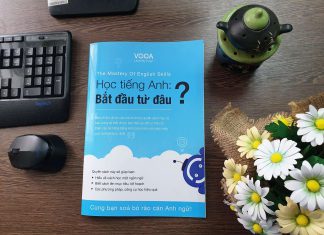Reference document content “Top 10 IELTS Grammar Mistakes and How To Avoid Them” below to catch 10 common grammatical errors in the IELTS exam and how to fix it. Hope content useful document for the learning needs and research.
25% of your marks in the writing and speaking tests come from using appropriate grammar structures that are error free. Unfortunately, when learning a new language people often make frequent grammar mistakes. In fact, if more than 50% of your sentences have any errors in them, you will not get more than band 6 for grammatical range and accuracy. In other words, to score 7 or higher, you should try to make more than half of your sentences completely error free. After marking thousands of IELTS tests I have noticed that the same errors are made again and again. Below are the top 10 mistakes and some advice on how to avoid them. Most people make all or some of these mistakes in their writing and speaking tests. A good thing to do is show some of your practice tests to a teacher or native speaker and establish your common errors. When you are aware of your common grammar errors you can easily fix them with practice and raise your score.

Use of the word ‘the’
We use the:
We don’t use the:
2- Countable and Uncountable Nouns
Some nouns in English are uncountable and will therefore always be in the singular form and never plural. Some common nouns that students often get wrong in the IELTS test are:
If a noun is uncountable you cannot use:
3- Noun Verb Agreement
The verb must agree with the noun. If you use a plural noun, you must use a plural verb and vice versa.
Example:
4– ing or to + infinitive
We use to + infinitive verb after the following verbs: learn how, would like, want, seem, refuse, promise, prepare, offer, learn, hope, help, deserve, decide, afford, and ask.
Example:
It is important to learn how to speak English
Most people cannot afford to go on holiday every year.
I would like to study overseas.
Note: ‘like’ can be followed by –ing or to + infinitive.
We use verb–ing after the following verbs: suggest, recommend, practice, mind, keep, involve, imagine, give up, finish, enjoy, deny, consider, carry on, and avoid.
Example:
I would recommend checking your writing for mistakes.
You should avoid drinking coffee after 6pm.
I’ve finished writing my essay
5- Use Of Articles Before Noun Phrases
You should include a/an before adjective singular noun combinations: a massive improvement, a steady increase, an overall majority, a very small percentage, a really strong argument.
Some exceptions include the word ‘of’ after the noun phrase: a wide range of, an equal number of, a large/small number of, a small/large/equal proportion of.
Exceptions: quite a few people, to a certain extent/degree
6- Use of Commas
In the IELTS writing test, we often use phrases called ‘discourse markers’ or ‘liking phrases’ to link our ideas together, such as on the one hand, on the other hand, however, for example, nevertheless, firstly, secondly, in conclusion, in summary.
We normally use a comma after a discourse marker that introduces a sentence:
We also use commas on either side of discourse markers in the middle of sentences:
7- Verb Tenses
Always consider which of the following tense you should use:
8- Prepositions After Adjectives and Nouns
Students often get confused about which prepositions to use after adjectives and nouns. Here are some common expressions:
At:
About or with:
In:
Between:
Of:
9- Apostrophes
We use apostrophes to shorten words or make contractions:
Contractions are normally used in spoken English and should therefore not be used in the academic writing tasks.
We can also use apostrophes to show possession:
We don’t use apostrophes with possessive pronouns such as:
10- Common Spelling Mistakes
Some common spelling mistakes:
The best way to keep up to date with posts like this is to like us on Facebook.
If you liked this post or you are having trouble with grammar you might like our Task 1 Grammar Guide or our post on How to Write a Complex Sentence. https://www.tuhocielts.vn/. Top 10 IELTS grammar mistakes and how to avoid them.



























